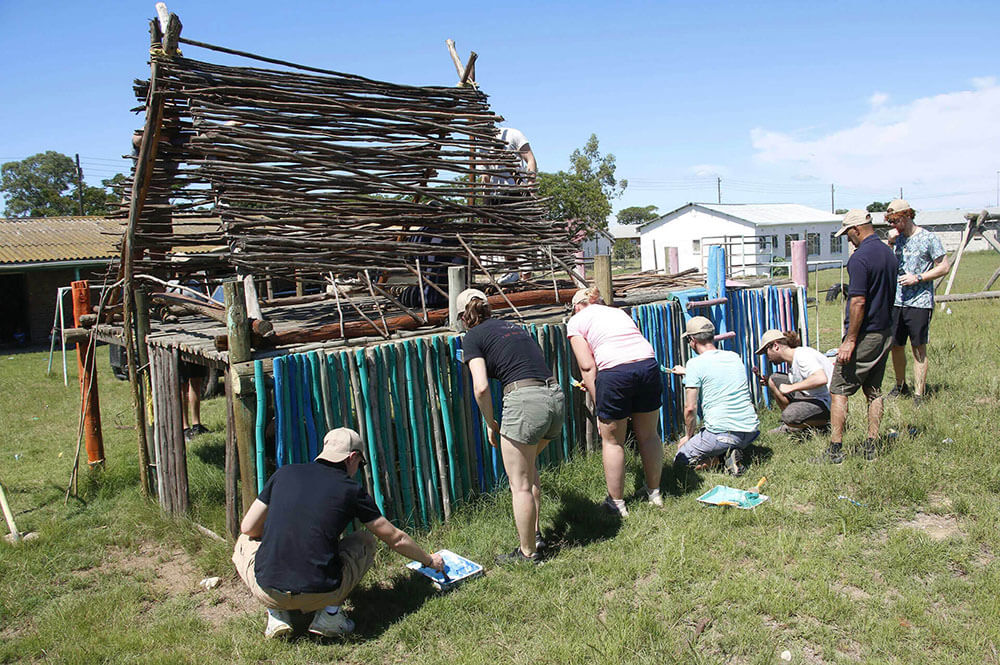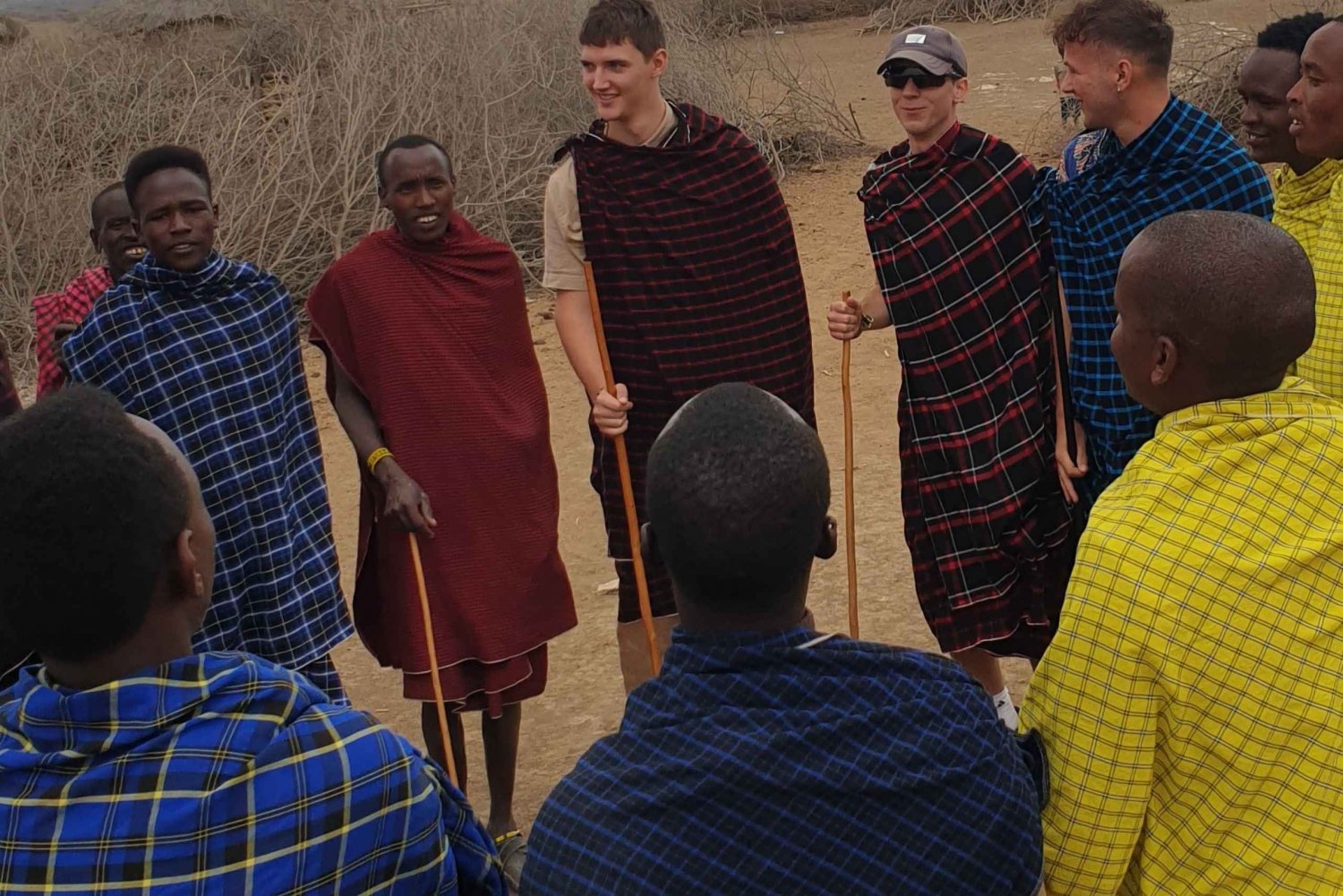Beyond the Safari – Authentic African Village Tours That Bring Culture to Life | WildHorn Africa
There is an Africa that most travelers never truly see — an Africa that breathes quietly behind the thunder of waterfalls, beyond the call of lions, and far from the dust trails of safari vehicles. It is an Africa of villages, of firelight and laughter, of ancient songs and everyday strength. To go beyond the safari and experience African village tours is to peel back the surface of adventure and encounter the continent’s truest heartbeat: its people, its traditions, and its soul.
While safaris capture the wild beauty of nature, village tours unveil the deeper story — one of culture, humanity, and connection. They invite travelers not to observe from a distance but to participate, to listen, to share. This is not a journey of spectacle but of meaning, where life’s simplicity becomes its greatest luxury. It is here, in the quiet corners of Africa’s rural communities, that travelers discover the timeless grace of the continent and the authenticity that lies beyond the safari.
The Hidden Depth of African Travel
African safaris have long been celebrated for their grandeur — the majestic elephants in Amboseli, the vast herds of wildebeest in the Serengeti, the golden plains of Maasai Mara. Yet, beyond these cinematic scenes lies another form of exploration, one less about wilderness and more about wisdom.
The African village experience represents a kind of travel that transcends photography. It offers travelers a glimpse into the heart of African life — how people live, work, celebrate, and survive in harmony with the land. These tours go beyond itineraries; they are invitations to understand the continent’s humanity.
Each village tells a story woven through centuries of resilience. It speaks of communities that have endured change without losing their essence, of traditions that remain vibrant despite modernization, and of people whose joy endures even amidst hardship. For travelers seeking depth, authenticity, and human connection, village tours reveal the Africa that exists not just in landscapes but in souls.
The Rhythm of Daily Life
Life in an African village moves in rhythm with the rising and setting of the sun. The pace is unhurried yet full of purpose. At dawn, the air fills with the sounds of awakening — roosters crow, children’s laughter echoes, and the aroma of wood smoke drifts gently across the fields.
Women begin their morning with quiet grace, fetching water from streams, pounding millet, or lighting cooking fires. Men prepare for the day’s work in the fields, with tools carried over their shoulders and songs of labor rising into the cool morning air. The community moves as one, bound by cooperation and respect.
Throughout the day, activities unfold like verses in a poem. Farmers till the soil; herders guide their cattle to pastures; artisans weave, carve, and mold objects that blend function with artistry. In the afternoons, the village hums with conversation, with elders sharing wisdom and children playing games passed down through generations.
Evenings bring the magic of togetherness. Families and neighbors gather around open fires, sharing stories and laughter under a canopy of stars. The sound of drums and singing carries across the night — not as performance, but as life itself. It is a rhythm that seems to echo the very pulse of the continent.
To experience this is to rediscover something universal — the beauty of living in harmony with time, with land, and with each other.
Traditions That Define the Spirit
Tradition is the living heartbeat of Africa’s villages. It is in the rituals that mark life’s milestones, the songs that hold memory, and the dances that speak without words. In these communities, culture is not a thing to be preserved in museums; it is lived daily.
Birth, marriage, and death — the cycle of life — are honored with reverence and celebration. A newborn is greeted with song and blessing, as elders pray for the child’s health and purpose. Initiation ceremonies guide adolescents into adulthood, teaching values of responsibility, courage, and unity. Weddings are moments of profound joy, drawing entire villages together in feasting, dancing, and spiritual union.
Even in mourning, African villages celebrate continuity. Death is not an end but a transition — a return to the ancestors who remain present in every wind, every harvest, and every prayer.
To witness these traditions is to feel the depth of Africa’s soul. Each gesture, chant, and color carries meaning. They tell stories of resilience, belonging, and respect for life — stories that travelers carry home, etched in their hearts long after the journey ends.
 Women: The Pillars of Village Life
Women: The Pillars of Village Life
The strength of African villages rests firmly on the shoulders of its women. They are the builders, nurturers, educators, and innovators who sustain families and communities alike. To understand village life is to understand their central role in shaping its rhythm.
Women rise before dawn to begin their day’s work — fetching water, tending to gardens, preparing food, and ensuring that their households flourish. They balance labor with love, weaving together the physical and emotional fabric of the community. Their knowledge of the land, their skill in crafts, and their wisdom in social matters make them the heart of rural Africa.
Beyond their daily responsibilities, women are also cultural custodians. They pass down traditions through storytelling, songs, and dances that teach history, morality, and identity. Their artistry — from weaving baskets to designing beadwork — transforms necessity into expression.
Visitors who meet and interact with African women often describe these encounters as humbling. Their grace under pressure, their laughter amidst adversity, and their pride in heritage reflect an unbreakable spirit. Through them, one learns that strength and gentleness can coexist, and that resilience is the quiet power that sustains life itself.
Hospitality: The Warmth That Welcomes the World
Hospitality in African villages is not an act of courtesy; it is a way of life. The concept of Ubuntu, meaning “I am because we are,” captures this perfectly. It is a philosophy of interconnectedness that shapes every gesture of kindness, every shared meal, and every smile.
Visitors to African villages are greeted with genuine warmth. It is common to be welcomed with song, dance, and laughter — symbols of joy that dissolve any sense of unfamiliarity. A simple handshake or offering of food becomes an act of friendship.
Meals, in particular, hold deep significance. To share food is to share trust. Traditional dishes such as millet porridge, roasted cassava, stewed beans, or fresh tropical fruit are prepared with care and presented with pride. Each flavor tells a story of the land, the season, and the people who cultivated it.
This hospitality transcends language. It is felt, not spoken — a reminder that kindness needs no translation. Travelers leave not as tourists but as extended family, having experienced the generosity that defines the African spirit.
Music and Dance: The Pulse of the Continent
If there is one language that unites all of Africa, it is rhythm. Music and dance are at the core of African identity, and nowhere is this more alive than in its villages. Here, music is not confined to celebration; it is part of daily existence — a heartbeat that keeps life vibrant.
Drums are sacred instruments, their deep tones believed to echo the voice of ancestors. Flutes, rattles, and handclaps accompany melodies that speak of love, labor, and life. Dance is spontaneous, expressive, and communal. Every movement carries meaning — from the stomping of feet that honors the earth to the graceful sway that mirrors the wind.
For visitors, joining in these dances is more than entertainment. It is participation in something ancient and universal — a celebration of the body’s connection to emotion, of community’s connection to spirit. Through music and dance, Africa tells its story in the language of joy.
Art and Craft: Creativity Rooted in Heritage
Artistry in African villages is a way of recording history, identity, and belief. Each creation, whether a woven basket, a carved mask, or a beaded necklace, carries meaning beyond its physical form.
Craftsmanship is learned from childhood, passed down through generations. Materials are drawn from the earth — clay, reeds, wood, and dyes made from plants and minerals. Every design, every symbol, has a purpose. Patterns represent fertility, unity, or protection. Colors signify emotion and clan identity.
Travelers who observe artisans at work see not only skill but devotion. There is patience in every stroke, mindfulness in every weave. To purchase such art is not merely to acquire an object, but to take home a piece of living heritage — a fragment of Africa’s enduring creativity.
Education and Community Development
Education in Africa’s villages stands as both a challenge and a beacon of hope. Schools are often modest — a few classrooms built through communal effort, equipped with limited resources but infinite determination. Teachers serve not only as educators but as mentors, shaping the minds and hearts of the next generation.
Children walk long distances to attend class, their enthusiasm undimmed by the journey. Lessons are not limited to textbooks; they encompass the values of cooperation, respect, and stewardship of the environment. Elders also play an essential role, passing down oral history and traditional knowledge that complement modern education.
For travelers, visiting village schools can be deeply moving. It reveals a spirit of resilience and ambition — a determination to build a future without forgetting the past. Every smile in those classrooms is a reminder that education remains the bridge between tradition and transformation.
 Sustainability and Responsible Tourism
Sustainability and Responsible Tourism
As the allure of village tours grows, so does the need for responsible and sustainable tourism. Authentic cultural experiences must protect dignity, empower communities, and preserve heritage rather than commodify it.
Tour operators such as WildHorn Africa have pioneered approaches that place communities at the center of the experience. Local guides, storytellers, and artisans lead the encounters, ensuring that tourism revenue flows directly into the villages. Such partnerships foster mutual respect — travelers gain insight and connection, while residents gain opportunity and pride.
Sustainability also extends to the environment. African villages depend on the land, and responsible tourism supports reforestation, clean water projects, and education in conservation. By choosing ethical travel, visitors help protect both culture and nature — ensuring that Africa’s authenticity remains intact for generations to come.
The Emotional Impact of Going Beyond the Safari
What makes a village tour unforgettable is not simply what is seen, but what is felt. It is the realization that the essence of travel lies not in distance but in connection.
Sitting by a fire under a starlit African sky, one begins to understand that life’s true beauty lies in simplicity. The smiles of strangers who treat you as kin, the laughter shared over food, the songs that rise into the night — these are experiences that linger long after the journey ends.
Travelers often describe their time in African villages as transformative. It strips away the noise of modern life and replaces it with clarity. It reminds us that happiness is not bought but built — through relationships, gratitude, and purpose.
Beyond the safari, beyond the wildlife and wonders, lies a deeper Africa — one that welcomes the traveler not as a guest but as a participant in its timeless story.
Where to Experience Authentic African Village Life
Across Africa, countless communities open their doors to travelers seeking authenticity. In East Africa, Uganda’s Batwa and Bakiga villages near Bwindi tell stories of ancient forest life. Rwanda’s Iby’Iwacu Cultural Village brings local traditions to life through dance, drumming, and storytelling. In Kenya and Tanzania, Maasai homesteads invite visitors into their world of cattle, color, and song. Southern Africa offers equally rich experiences among the Zulu, Xhosa, and Himba people, each preserving distinct customs and aesthetics.
Each visit reveals a different face of Africa — diverse yet unified in warmth and humanity. What binds them all is authenticity: life lived with intention, dignity, and joy.
Step Beyond the Safari with WildHorn Africa
To go beyond the safari is to step into the living soul of Africa. It is to realize that the continent’s greatest beauty lies not only in its landscapes or wildlife but in the quiet power of its people.
An African village tour is more than an excursion — it is an immersion into the heart of culture. It offers a chance to slow down, to listen, and to see life as it is meant to be lived: in balance with nature, in community, and in gratitude.
When travelers venture into Africa’s villages, they do more than witness a different way of life — they become part of it. They discover that Africa’s greatest treasures are not its safaris but its stories, not its lodges but its laughter, not its luxury but its love.
Book your next Africa tour and cultural safari with WildHorn Africa, and step beyond the safari into the timeless villages where Africa’s heart still beats in song, in spirit, and in soul.









